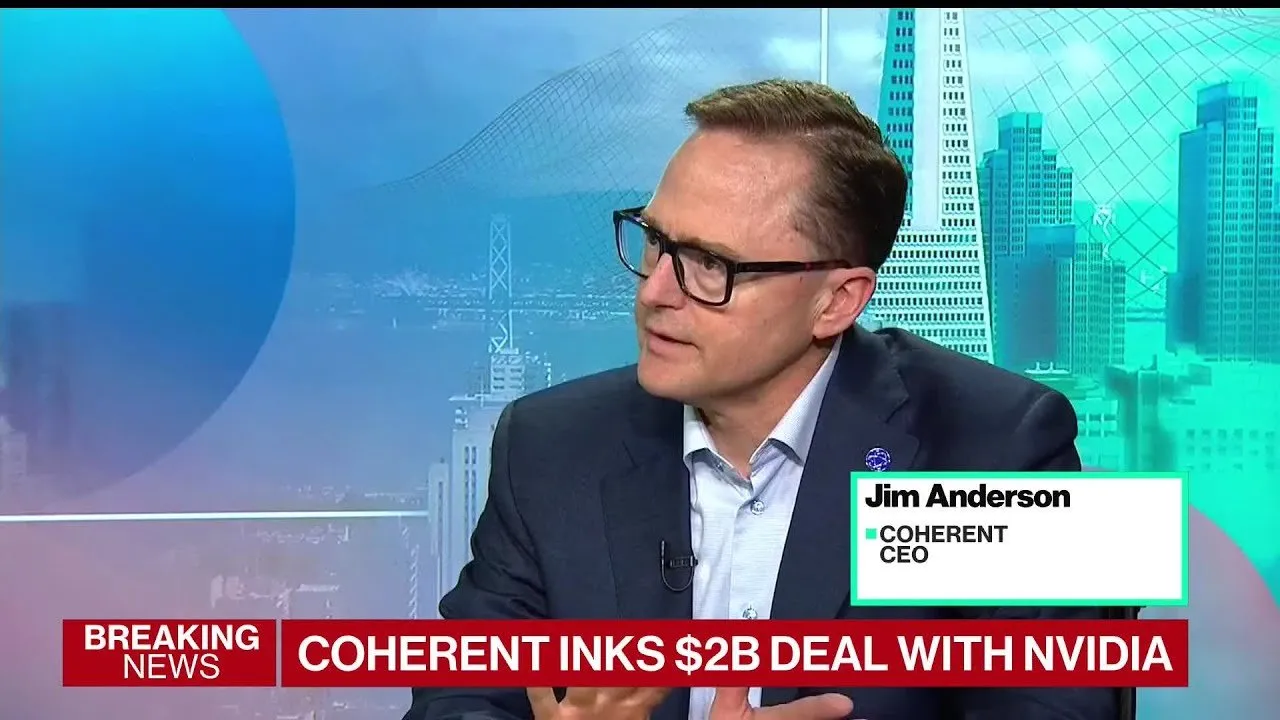Table of Contents
Former Greenhill CEO Scott Bok reveals how investment bankers transformed global business through shareholder value evangelism.
Key Takeaways
- Investment bankers evolved from tiny specialized firms into global missionaries spreading shareholder value philosophy across continents during the 1980s-2000s
- Boutique M&A firms gained market share by positioning themselves as conflict-free alternatives to bulge bracket banks with multiple business lines
- The consolidation wave created massive industry concentration, with advisory fees flowing to just nine firms globally by the early 2000s
- M&A activity exploded from near-zero levels in the early 1980s to $500 billion-$1 trillion annually in cross-border transactions alone
- Five major crises shaped Wall Street evolution: LTCM collapse, dot-com bubble, 2008 financial crisis, COVID pandemic, and post-pandemic deglobalization pressures
- Greenhill's $550 million sale to Mizuho reflects broader industry challenges as boutique firms face increased competition and regulatory pressures
- Current deglobalization trends threaten the fundamental shareholder value model that drove decades of M&A growth and industry profits
- Work-life balance remains challenging in investment banking, with senior executives taking first two-week vacations only at age 51
- The number of publicly traded companies in America fell by half during Greenhill's existence, reflecting broader market structure changes
Timeline Overview
- 00:00–15:00 — Introduction to M&A industry basics; Scott Bok explains what investment bankers actually do and why companies pay substantial fees for deal advice and board comfort
- 15:00–30:00 — Historical context of boutique firm emergence; Greenhill's founding as reaction to industry consolidation; conflict-free positioning versus bulge bracket competitors
- 30:00–45:00 — Career evolution from Morgan Stanley to Greenhill; power struggles between banking and trading divisions; cultural differences between traders and deal makers
- 45:00–60:00 — Globalization's role in M&A explosion; transformation from localized businesses to national and global consolidation; Reagan-era capitalism embrace
- 60:00–75:00 — Shareholder value missionary work in Europe; spreading American capitalism philosophy to companies focused on enterprise survival rather than stock performance
- 75:00–90:00 — Five crises analysis: LTCM, dot-com, 2008 financial crisis, COVID, and post-pandemic challenges including inflation and work-from-home cultural shifts
- 90:00–105:00 — Contemporary deglobalization pressures; Trump administration policy impacts; shift away from pure shareholder value toward national security considerations
- 105:00–120:00 — Greenhill's sale to Mizuho for $550 million; IPO strategy for crystallizing shareholder value; industry concentration and public company challenges
- 120:00–135:00 — Work-life balance realities; first two-week vacation at age 51; deal leak sources; recruiting democratization beyond elite schools
- 135:00–150:00 — Career reflections on being "Forrest Gump of Wall Street"; regrets about globalization impacts; industry future amid protectionism; legacy assessment
The Transformation from Specialists to Global Powerhouses
Investment banking underwent radical transformation from highly specialized regional practices in the early 1980s to consolidated global powerhouses by the 2000s. When Scott Bok graduated college in 1981 with the Dow Jones below 1,000, M&A activity was "almost unheard of" and phrases like private equity, hedge funds, and activist investors "didn't even exist." The business operated through extreme specialization: technology deals required Hamburg and Quist or Alex Brown, UK transactions demanded British merchant banks like Kleinwort Benson or SG Warburg, while different regions maintained distinct financial cultures and practices.
- The industry operated through complete specialization in the early 1980s, with technology deals, UK transactions, and regional work handled by entirely separate firms rather than integrated global banks
- Morgan Stanley's "grand innovation" involved forming a three-person M&A group to sell advisory services, representing the tiny scale of deal-making at major Wall Street firms
- Massive consolidation eliminated specialized players over 10-15 years: "the four horsemen who did technology were gone. All the British merchant banks were gone"
- By Greenhill's founding, "almost all the advisory fees in the world were paid to one of nine firms. There were six in America and three in Europe"
- Cross-border M&A by American companies grew from "roughly zero" in early 1980s to "$500 billion and a trillion dollars a year" over the following decades
- The transformation reflected broader economic shifts as "every town had its own newspaper, every town had its own bank, every region had its own soft drink brands" before global consolidation
- Investment banking became the "hood ornament on the Mercedes" while "the engine of the Mercedes is the trading operation" as capital-intensive businesses gained prominence
Boutique Strategy and Conflict-Free Positioning
Greenhill pioneered the boutique investment bank model as a direct response to industry consolidation, offering a "different flavor" focused exclusively on M&A advisory without cross-selling pressures. The firm's conflict-free positioning gained credibility following Eliot Spitzer's investigation of research analyst conflicts, which "woke up corporate America to the fact that sometimes there are conflicts of interest you're not aware of." This created market opportunity for firms that could credibly claim complete alignment with client interests rather than promoting multiple financial products.
- Boutique positioning emerged from industry consolidation creating "two flavors": nine firms selling "one-stop shopping all the different products very sales-oriented approach" versus specialized M&A-only advisory
- Spitzer's Merrill Lynch settlement over research analyst conflicts provided credibility for conflict-free messaging even though "it had nothing to do with M&A"
- Bulge bracket counterargument emphasized financing capabilities and warned that boutiques "get paid only when they complete the deal" creating incentives to push transactions
- Boutique response stressed reputation-based business model: "if we're out there telling companies to do deals that don't really make sense, it's going to hurt our reputation"
- Greenhill's IPO success created template for other boutiques, with share price quadrupling over first 18 months to reach $2 billion valuation with fewer than 100 employees
- Industry specialization evolved from broad categories like healthcare to narrow subspecialties: "biotech or a pharma or a healthcare devices or a hospital management expert"
- Success required building "narrow but deep rolodex" rather than broad industry relationships, with specialists becoming leading M&A experts in specific niches
Shareholder Value Missionaries in Global Markets
American investment bankers functioned as missionaries spreading shareholder value philosophy across international markets during the globalization era. When Bok moved to London in 1990 after the Berlin Wall fell, Morgan Stanley operated from "a rabbit warren of small offices behind the John Lewis department store" rather than the City of London financial district. American bankers explicitly promoted shareholder value focus to European companies that traditionally prioritized enterprise survival and resilience over stock price maximization.
- American bankers described themselves as "missionaries" who "weren't selling a religion, but... the religion we were spreading is that you should focus on shareholder value"
- European companies operated under different philosophical frameworks emphasizing "building a bigger enterprise or surviving difficult times and just building great resilience" rather than stock performance
- The shareholder value concept represented fundamental reorientation of corporate purpose away from stakeholder capitalism toward pure financial optimization
- Market for corporate control created "discipline on companies that they had to try to maximize shareholder value because if they didn't do that they would get bought"
- Low stock prices functioned as disciplinary mechanism: management teams prioritizing non-profitable activities created "opportunity for one of your competitors to buy you"
- Berlin Wall's fall and European Union integration provided opening for American financial practices to penetrate previously closed markets
- "Trillions of dollars worth of M&A transactions" created self-reinforcing cycle where "deals beget deals" as competitive pressures spread across industries
The Great Consolidation Wave and Industry Rollups
The M&A boom fundamentally transformed corporate America through systematic industry consolidation that created "national and then global champions" from previously fragmented local and regional businesses. Every industry experienced rollup activity as companies pursued economies of scale and market dominance, driven by technological change and competitive pressures. The media industry exemplified this transformation as "newspapers sort of largely died except for a few like the New York Times" while traditional broadcasting gave way to cable, streaming, and podcast platforms.
- Fragmented local businesses across all sectors provided raw material for consolidation: newspapers, banks, soft drink brands, ice cream companies, and consumer goods all maintained regional character before M&A waves
- Technology disruption forced consolidation as companies needed scale to compete: "legacy media boy they have had a rough generation not a rough couple years like a rough generation"
- Media evolution demonstrated industry transformation rather than destruction: "it's not that the business went away. It's just that it evolved"
- Competitive dynamics created copycat behavior: "if you're in an industry and you see one of your competitors buy something that gives them a leg up... you're going to go out and try to find something of your own"
- Reagan-era capitalism embrace included "reduce regulation, reduce taxes" philosophy that spread globally and enabled cross-border transaction growth
- European Union formation and China joining World Trade Organization provided structural support for international business integration
- Self-reinforcing cycle developed where successful deals encouraged more activity: "it kind of fed on itself and obviously in the end created a massive industry"
Five Crisis Epochs That Shaped Wall Street Evolution
Wall Street survived and evolved through five major crisis periods that tested industry resilience and forced adaptation: LTCM collapse, dot-com bubble burst, 2008 financial crisis, COVID pandemic, and post-pandemic deglobalization pressures. Each crisis eliminated weaker firms while survivors adapted business models and strategies. The post-pandemic period presented unique challenges combining economic disruption with fundamental changes in work culture and geopolitical tensions that continue reverberating through financial markets.
- LTCM collapse demonstrated systemic risk from highly leveraged financial strategies and interconnected counterparty exposures across major Wall Street institutions
- Dot-com bubble burst revealed technology sector speculation dangers while permanent changes to business models and valuation methodologies emerged
- 2008 financial crisis represented existential threat requiring government intervention to prevent complete industry collapse and financial system breakdown
- COVID pandemic forced immediate operational adaptations including remote work adoption and fundamental reconsideration of traditional office-based collaboration models
- Post-pandemic crisis combined "COVID recovery when there was a ton of stimulus put into the economy and the Ukraine invasion" driving inflation and interest rate increases
- Each crisis eliminated firms: "a large majority of the Wall Street firms that were in business when I started are long gone"
- Survival required adaptation: "it really is a game of survival played on a grand scale" where successful firms evolved strategies for changing circumstances
- Current crisis proves most complex because it affects "literally the way people work" beyond traditional market and economic disruptions
Deglobalization Threat to the Shareholder Value Model
Current geopolitical tensions and protectionist policies threaten the fundamental globalization assumptions that drove decades of M&A activity and industry growth. The Biden and Trump administrations' opposition to Nippon Steel's US Steel acquisition exemplifies how national security concerns override pure shareholder value maximization. Countries increasingly prioritize domestic production capacity across strategic sectors, potentially reversing the consolidation trends that created global corporate champions.
- US Steel deal opposition demonstrates bipartisan discomfort with foreign ownership of strategic assets regardless of shareholder value benefits to existing investors
- National security considerations expand beyond traditional defense sectors: "maybe that's true of pharmaceuticals. Maybe that's true of our defense products. Maybe that's true of all the electronics"
- Food security analogies suggest broad application: "if you are running a country that's not the greatest place to grow food, you probably want to grow some of your own food nonetheless"
- Administrative policy uncertainty creates market volatility: "people don't know what the rules are, so they can't quite do that" regarding deal planning and execution
- Tariff policies could drive some M&A activity as "European companies that sell in the US might think, okay, we need to have manufacturing capability in the US"
- China trade relationship described as "unsustainable" by officials, though business leaders hope for policy moderation rather than continued escalation
- Deglobalization represents potential reversal of "trillions of dollars worth of M&A transactions" that created integrated global supply chains and corporate structures
- Textile and clothing import concerns demonstrate how protectionist logic can extend beyond strategically critical sectors to encompass broad economic activities
Industry Structure Evolution and Public Company Challenges
Greenhill's $550 million sale to Mizuho reflected broader structural changes affecting boutique investment banks and public company operations. The number of publicly traded companies in America declined by half during the firm's existence, driven by institutional investor preferences for larger, more liquid stocks and increased regulatory compliance costs. Going public provided valuable liquidity for founders and early employees but created ongoing management complexity that many firms eventually sought to escape.
- IPO strategy enabled value crystallization: "if you want to crystallize and collect shareholder value, a very good way of doing it is to take your company public"
- Public company challenges intensified over time: "Being a public company is not nearly as much fun as going public" due to regulatory requirements and investor relations demands
- Goldman Sachs partnership conversion provided template where going public at "three times book" tripled overnight value versus traditional book value buyouts at retirement
- Boutique firm competition intensified following Greenhill's successful IPO model, creating "more crowded" marketplace with numerous new entrants copying the strategy
- Mizuho acquisition reflected strategic shift toward global platform integration rather than maintaining independent boutique positioning for future growth
- Personal considerations influenced timing: "we don't go forever either" regarding founder lifecycle and succession planning for leadership transitions
- Industry concentration affected deal flow and competitive positioning as larger institutions gained market share through scale advantages and integrated service offerings
- Regulatory environment made public company status less attractive over time, contributing to broader market structure changes affecting capital formation
Work-Life Balance Realities and Cultural Evolution
Investment banking culture demanded extreme personal sacrifice with senior executives taking first extended vacations only after reaching significant career milestones. Bok's first two-week vacation at age 51 illustrated industry expectations where deals could collapse during family activities, requiring constant availability and emotional discipline. The profession required subordinating personal preferences to client needs while maintaining performance standards during crisis periods.
- First two-week vacation at age 51 demonstrated career-long commitment where "I always felt like I played a pretty central role even before I was the CEO"
- Deal failures during personal time required emotional control: "your job then is like don't ruin your family's day. Keep your game face on and just keep moving"
- Bad news accessibility created constant stress: "it can come at 5 in the morning when you just woke up. It can come when you're at the intermission of a show"
- Investment banking operated as "team sport" with "real camaraderie that develops" through shared long hours and travel experiences versus individualistic trading culture
- Cultural differences between firms affected employee treatment, with some operating "too much of a sweat shop mentality" that damaged long-term performance
- Successful work-life integration required personal strategies: married "43 years" with attendance at children's activities and "maybe 50 Broadway shows a year"
- Industry recruiting democratized beyond elite institutions as talent needs expanded: "young people who work hard, who take enough of the STEM stuff... can come from almost anywhere"
- COVID remote work challenges affected traditional mentorship and collaboration models essential for junior employee development and firm culture maintenance
Legacy Assessment and Industry Future Prospects
Bok's "Forrest Gump of Wall Street" characterization reflected his front-row seat to financial history without claiming central importance in major events. His missionary work spreading shareholder value philosophy globally contributed to massive economic transformation, though current deglobalization pressures raise questions about the sustainability of pure financial optimization models. The industry faces fundamental reconsideration of its role as geopolitical tensions challenge international integration assumptions.
- "Forrest Gump" analogy emphasized witnessing major events without claiming personal centrality: "I didn't feel like I always needed to be the most important guy in the room"
- Advisory role required subordination to client objectives: "your client should always be more important than you. You're whispering in their ear. You're giving them great advice"
- Career positioning through multiple crises provided unique perspective on "dot crash, the financial crisis, 9/11, the COVID" and their market impacts
- Shareholder value evangelism contributed to economic growth but created social costs through local business elimination and community disruption
- Future industry evolution requires addressing "diminishing returns" on pure transaction focus and considering "constraints on that" approach
- Legitimate questions emerge about massive "industry of lawyers and bankers" focused on corporate control transactions and their broader social benefits
- Protectionist trends suggest partial reversal of globalization gains, requiring industry adaptation to more constrained international business environment
- Current period represents potential inflection point where "pure shareholder value" model faces challenge from national security and social stability considerations
Wall Street's evolution from specialized regional practices to global shareholder value missionaries fundamentally transformed corporate America and international business practices. The industry's success in promoting financial optimization across diverse markets created unprecedented consolidation and economic integration, but current deglobalization pressures suggest potential retreat from pure shareholder capitalism toward models incorporating broader stakeholder considerations and national security priorities.
Practical Implications:
- Investment banking professionals should prepare for reduced cross-border M&A activity as protectionist policies limit traditional globalization-driven deal flow
- Corporate executives need strategies balancing shareholder value maximization with national security considerations and regulatory compliance requirements
- Boutique advisory firms face increased competition and should consider strategic partnerships or sales to larger institutions for scale advantages
- Young professionals entering finance should develop specialized expertise in narrow industry verticals rather than pursuing generalist M&A advisory roles
- Investment strategies should account for potential reversal of industry consolidation trends as governments prioritize domestic production capabilities
- Business schools and career counselors should set realistic expectations about work-life balance challenges in high-stakes advisory roles requiring constant client availability





